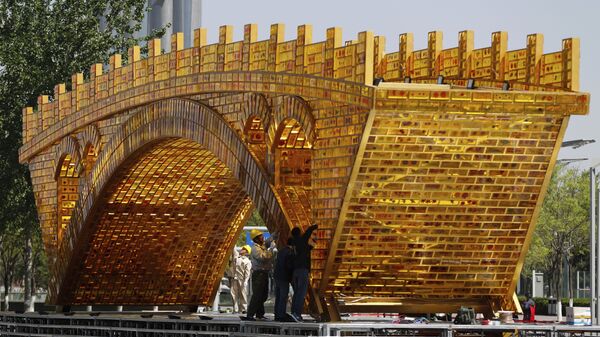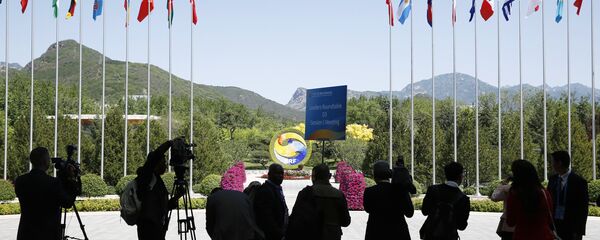"In many of the countries where you have armed conflicts along the Belt and Road it is a protracted armed conflict that lasts for decades, sometimes several generations are affected. And what we want is not to have this population being dependent on aid for generations. We are trying to look for ways to strengthen their livelihoods, so that they can get an income… And we see the Belt and Road initiative, like other development initiatives, as contributing to offering opportunities for livelihood, for income generation, for job creation," Carbonnier said.
He specified that the promotion of international humanitarian law in order to "prevent suffering" was one of the ways the BRI could strengthen its humanitarian aspect.
READ MORE: China's Xi Says Belt and Road 'Not an Exclusive Club'
Carbonnier recalled that the ICRC had participated in the first Belt and Road forum in 2017 but decided to opt out of the ongoing second forum since it was going to primarily focus on the economy.
"We are discussing with the Chinese government that we are not participating in the meeting which is focusing primarily on economic issues and business issues. And of course our concerns are really deep to humanitarian dimensions," Carbonnier explained.
Carbonnier said that the ICRC had been discussing international humanitarian law and sharing its humanitarian concerns with the Chinese government. He added that a significant number of countries located along the Belt and Road's road and train routes had been affected by armed conflicts, and the ICRC was, therefore, discussing with China ways to include a "humanitarian dimension" into the BRI.
Beijing’s BRI seeks to improve and develop trade and transport infrastructure across Asia, Europe, Russia and the Middle East.
On Possible Aid to Libya Amid Escalation
The International Committee of the Red Cross (ICRC) seeks to increase its presence in Libya in order to provide more support amid the escalation of conflict in the North African country, ICRC Vice-President Gilles Carbonnier told Sputnik in an interview.
READ MORE: Libyan Gov't Forces Push Back Haftar's Forces South of Tripoli — Reports
Carbonnier noted that the ICRC was concerned over the hostilities in the Libyan capital of Tripoli, where tensions escalated in early April. He stressed that fighting in the city, home to around 1 million people, could cause "grave humanitarian consequences," including weapons' "indiscriminate impact affecting civilians."
"We have at present just in Tripoli over seventy staff working with the ICRC, and we are also liasing with Libyan Red Crescent. And we stand ready to step up our assistance if needed… We seek… to increase and strengthen our presence because we expect that the needs might increase. And we have to be ready to provide assistance. But, of course, we have also to discuss [this] with all the parties to the conflict to ensure that they are ready to respect the strictly humanitarian, impartial, neutral and independent action of the ICRC," Carbonnier said.
"The second thing that we do is to assist the health centers and the hospitals. We have provided already a lot of material for war-wounded and weapon-wounded, and we also support hospitals to ensure that they are properly running, even if there are power cuts. Because this is another issue where we have concerns," Carbonnier said.
He recalled that the frequent power cuts during last summer's hostilities in Tripoli had hindered the distribution of water and operation of hospitals. The ICRC was now aiming to ensure that locals had access to drinking water, and that power was provided to hospitals even if the event of power cuts.
"We have provided food and non-food items to internally displaced people, because you have already a lot of — thousands of — people who have been displaced because of the violence," Carbonnier said.
The official stressed that the organization continued to support civilians.
READ MORE: Over 32,000 People Flee Tripoli as Libya Conflict Rages — UN Refugees Agency
Libya has been split between two administrations since its long-time leader, Muammar Gaddafi, was deposed and killed in 2011. The eastern-backed Libyan National Army, led by Field Marshal Khalifa Haftar, besieged the capital of Tripoli in early April with the aim of freeing it from what Haftar called terrorists. The Tripoli-based UN-backed Government of National Accord promptly launched a counteroffensive.




